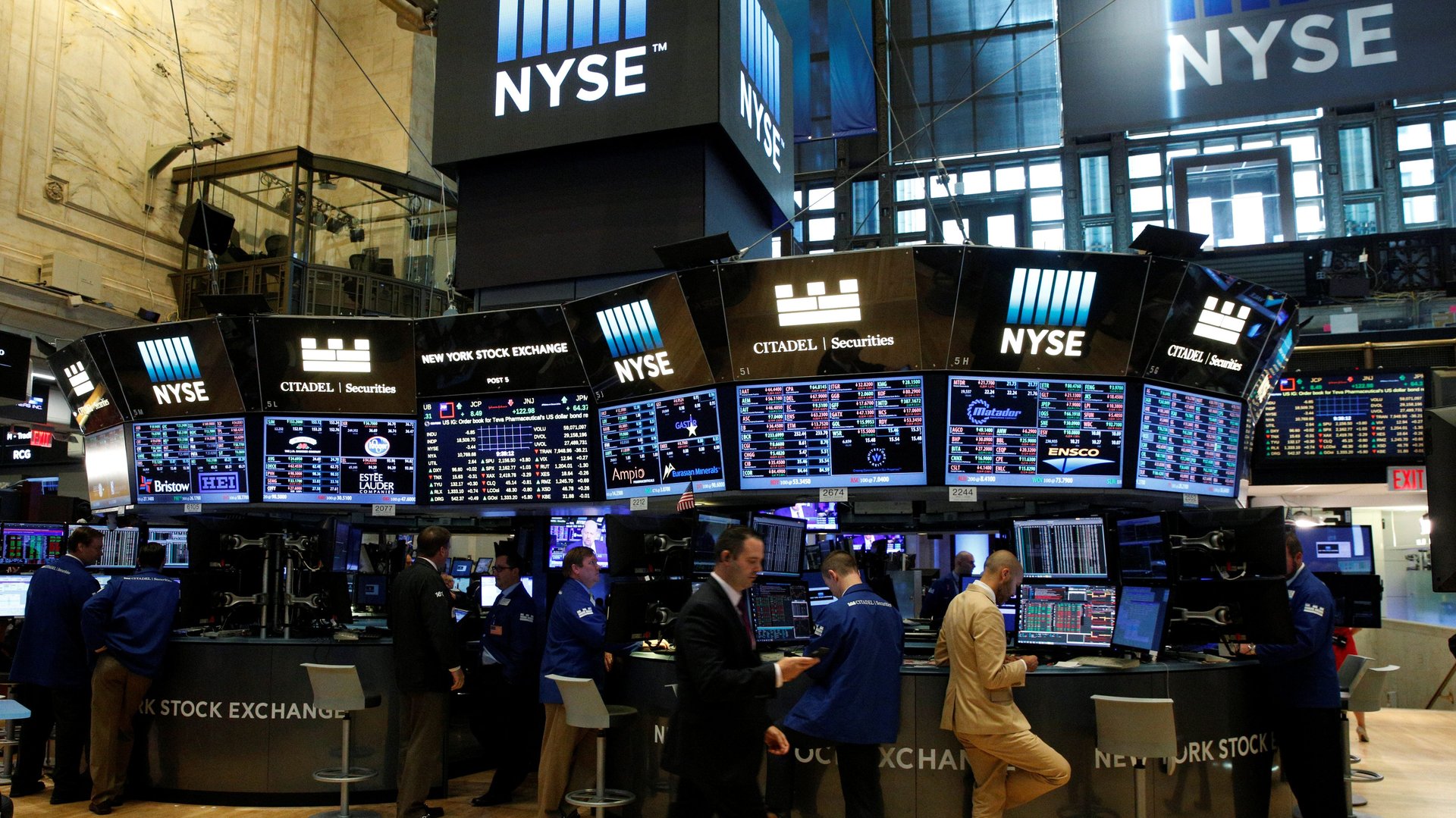Citadel Securities gets almost as much trading volume as Nasdaq
In the US stock market, many of the most important places for matching buyers and sellers are now large trading firms. Taken together, two of the mightiest—Citadel Securities and Virtu Financial—account for more of the overall equity market than the New York Stock Exchange.


In the US stock market, many of the most important places for matching buyers and sellers are now large trading firms. Taken together, two of the mightiest—Citadel Securities and Virtu Financial—account for more of the overall equity market than the New York Stock Exchange.
Trading companies and stock exchanges are obviously different types of businesses, but the comparison illustrates how retail brokerage has influenced US market structure in recent years. Apps like Robinhood and Schwab typically send their retail orders to companies like Citadel Securities, Virtu, or G1 Execution to execute the transactions. The firms, in turn, match buyers and sellers internally instead of on a traditional exchange like NYSE or Nasdaq. And retail buying and selling is soaring: For the largest online brokers, the number of daily trades has tripled since 2019, according to Goldman Sachs.
As retail investing booms, that’s led to a surge in so-called off-exchange trading, which now accounts for about 47% or more of the US stock market, according to Bloomberg Intelligence. In 2019, off-exchange trading was around 40%, and now it can be more than half of the market on some days. (Not all off-exchange trading is between retail investors and market makers—a large portion also consists of trading in dark pools.)
The flow of retail stock and options orders to trading companies like Citadel Securities reflects the way many brokerages make money, known as payment for order flow. These days, instead of charging up-front commissions, the likes of Robinhood and Schwab generate revenue by selling those transactions to market makers that are kind of like the foreign-exchange booth in an airport: The market makers profit from the spread between the bid and the offer on a given security. Everyone, from mutual funds to high-frequency trading firms, wants to transact with armchair investors because the orders are seen as relatively harmless and uninformed.
As the market makers’ internal share of the overall market grows, one concern is whether that could distort the public prices displayed by stock exchanges that just about everyone relies on.
As Quartz has written before, the answer to that question tends to depend on who you ask. Exchanges that are jealous of these retail trading flows will likely say off-exchange trading has gone too far and has damaged a public good—transparent stock markets. Others may suggest that markets are far from the breaking point, and in the meantime retail traders are the big winners from the shift to payment for order flow.
Payment for order flow has been around for decades, but it’s under renewed scrutiny after retail traders apparently banded together to drive up the price of GameStop shares last week, costing hedge funds that were betting the other direction billions of dollars. While order-flow payments had little if anything to do with the GameStop saga, the episode sparked concerns about whether retail traders are getting a fair shake after brokerages curtailed trading in GameStop and other securities
On the one side, market structure analysts say everyday investors are getting a better deal on their trades than they ever have. Brokers charge all market makers the same rate, which is meant to reduce conflicts of interest. The market makers, meanwhile, are required to give retail users the best price available, and they say they often provide retail traders with a deal that’s even better than that, known as price improvement.
Citadel Securities says it provided price improvement worth $1.5 billion on retail equity orders in 2020. Virtu CEO Doug Cifu told analysts in November that the company had provided more than $900 million of price improvement to retail traders that year.
“What folks miss, because of the fascination with ‘payment for order flow,’ is the exceptional amount of execution, quality and price improvement,” Cifu said in the analyst call. ”Ninety-nine percent of orders that come to Virtu and to the competitors are price improved off of the national best bid and best offer. So you have literally millions of folks that are ‘retail investors’ that are paying zero commission to access the US equities markets and are receiving prices better than any institutional investor can receive.”
Detractors say these order flow payments present a conflict of interest, making brokerages more aligned with market makers than they are with retail investors. It can also make it harder for everyday traders to figure out which brokers provide the best bargain. A flat commission is more straightforward and transparent than having to compare bid-offer spreads.
These questions are likely to be a top order of business for Gary Gensler, US president Joe Biden’s pick to run the Securities and Exchange Commission, if he gets approval from Congress. In November, Virtu’s Cifu suggested he wasn’t worried at all about scrutiny over order-flow payments from officials in Washington. Once they realize everyday people can get better stock prices than large institutional investors can, regulators will get behind it, he said.
They “will look at that and say, ‘My God. What a system this is,'” Cifu said during the analyst call. “I have zero concern that there’ll be some type of regulatory focus. I’ve spoken to the SEC at length about this. They understand it, and they applaud the environment as well.”